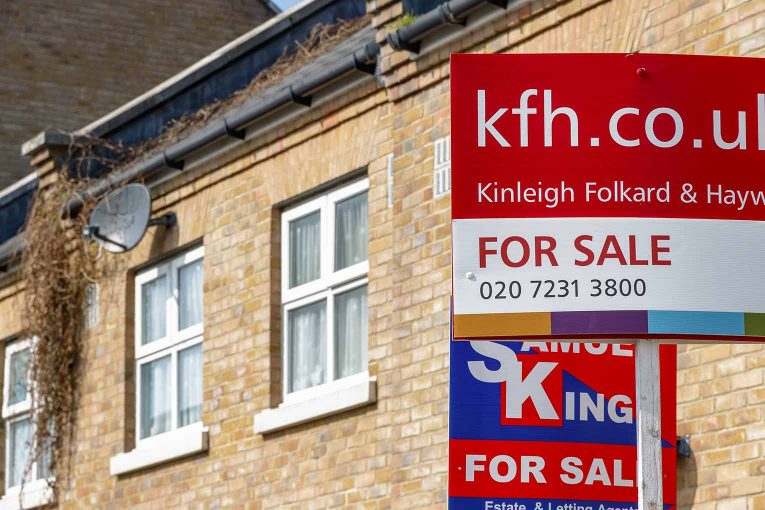Homes listed above market value take more than twice as long to sell, Zoopla has warned, as house price growth shows signs of stabilising over the summer months.
The latest Zoopla House Price Index shows that sales agreed are up 5% on last year, while buyer demand has risen 4%.
Despite this, the market remains tilted in favour of buyers due to a 10% increase in homes for sale compared with 2024, putting pressure on sellers to set realistic asking prices.
Average UK house prices are now £270,600, 1.3% higher than a year ago. This compares with growth of 2.1% at the start of 2025 and 0.6% a year earlier.
Speculation over tax reform ahead of the Autumn Budget is weighing on sentiment, with reports suggesting stamp duty could be replaced by an annual property tax on homes worth more than £500,000. Proposals for capital gains tax to be levied on properties above £1.5 million have also raised concerns.
MOST EXPOSED
A third of homes currently on the market are priced above £500,000, meaning London and the South East would be most exposed if changes were implemented. Just 4% of homes are worth more than £1.5 million, but Zoopla cautioned that uncertainty may cause some buyers to delay decisions.
The time a home spends on the market varies sharply by region. In July, the average was 27 days in the North West and North East – 23% faster than the national average of 35 days – helping to support annual price growth of 2.7% and 2.1% respectively.
By contrast, sales in southern England are taking 39 days, 11% longer than the average, with price growth slowing to just 0.3% in the South East and South West.
PRICE CUTS
Zoopla found that homes which required an asking price reduction took 2.4 times longer to sell than those correctly priced at the outset. In July, one in 10 homes recorded a price cut, well above the five-year average of 6%.

Richard Donnell, executive director at Zoopla, said: “There is plenty of demand for homes and more people are looking to move. However, buyers also have much greater choice to choose from, especially across areas of southern England.
“There is a clear link between buyer choice and price inflation and how long it is taking homes to sell.
“Sellers need to understand local market conditions when considering how to market their home, setting the right price and how quickly they would like to sell. The risk of being too ambitious on price is your home taking more than twice as long to find a buyer — or not selling at all.
“We expect UK house price inflation to continue in a range of 1.5–2% over the rest of the year. There are signs that prices are firming in southern England but price growth is slowing across northern regions. The market remains on track for 5% more sales in 2025 at 1.15 million.”
INDUSTRY REACTION

Tomer Aboody, director of specialist lender MT Finance, said: “In a buyer’s market, where fewer buyers are looking to take the plunge, sensitively-priced homes will usually sell quicker, as sellers compete. Pricing isn’t the only factor in selling, as homes in good condition can always attract a premium with buyers reluctant to spend more savings on carrying out refurbishment works.
“Since we have possibly seen the final base rate cut of the year, buyers may need to get used to the new ‘norm’ for mortgage rates for the foreseeable future.
“Surely any government would know that an active property market fuels the economy.”
“Therefore, anyone waiting to buy either takes the plunge or might have to wait until 2026 and the possibility of further rate cuts. With little assistance from the Government in the form it of helping the market, with stamp duty changes and further taxes on homes in the pipeline, a slowdown in transactional volumes can be anticipated.
“Surely any government would know that an active property market fuels the economy, so any help is always welcomed.”
TAX SPECULATION

Tom Bill, head of UK residential research at Knight Frank, said: “A price-sensitive housing market has become a whole lot more price-sensitive over the last fortnight thanks to the speculation around property taxes.
“With supply still outweighing demand as autumn approaches, we expect price growth this year to hover not far above zero.
“A November Budget means weeks of more speculation in a tiresome re-run of 2024 that will keep a lid on transaction activity and stamp duty revenue.”





